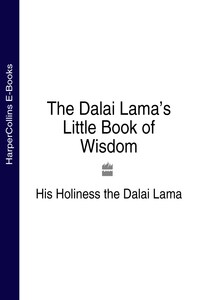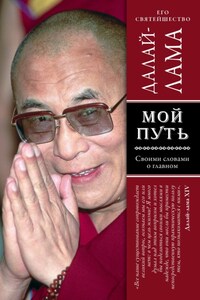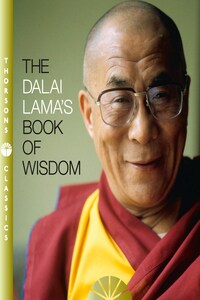The Four Noble Truths are the very foundation of the Buddhist teaching, and that is why they are so important. In fact, if you don’t understand the Four Noble Truths, and if you have not experienced the truth of this teaching personally, it is impossible to practice Buddha Dharma. Therefore I am always very happy to have the opportunity to explain them.
Generally speaking, I believe that all the major world religions have the potential to serve humanity and develop good human beings. By “good” or “nice,” I don’t mean that people look good; I mean that they have a good and more compassionate heart. This is why I always say that it is better to follow one’s own traditional religion, because by changing religion you may eventually find emotional or intellectual difficulties. For example, in the West the traditional religious culture is Christian, so it may be better for you to follow that.
However, for those of you who really feel that your traditional religion is not effective for you, and for those who are radical atheists, then the Buddhist way of explaining things may hold some attraction. Maybe in this case it is all right to follow Buddhism – generally, I think it is better to have some kind of religious training than none at all. If you really feel attracted to the Buddhist approach, and the Buddhist way of training the mind, it is very important to reflect carefully, and only when you feel it is really suitable for you is it right to adopt Buddhism as your personal religion.
There is another very important point here. Human nature is such that sometimes, in order to justify our adoption of a new religion, we may criticize our previous religion, or our country’s traditional religion, and claim it is inadequate. This should not happen. Firstly, although your previous religion may not be effective for you, that does not mean it will completely fail to be of value to millions of other people. Since we should respect all human beings, we must also respect those who are following different religious paths. Furthermore, your previous religion – like all religions – does have the potential to help certain types of people. It is clear that for some people the Christian approach is more effective than the Buddhist one. It depends on the individual’s mental disposition. We must therefore appreciate that potential in each religion, and respect all those who follow them.
The second reason is that we are now becoming aware of the many religious traditions of the world, and people are trying to promote genuine harmony between them. I think there are now many interfaith circles and the idea of religious pluralism is taking root. This is a very encouraging sign. At such a time, when people are promoting genuine religious understanding in many areas, a single individual’s criticism can be very harmful. So on these grounds, we should maintain a spirit of respect for other religions.
I wanted to begin with these points, because when I actually explain the Four Noble Truths, I have to argue the Buddhist way is the best! Also, if you were to ask me what the best religion is for me personally, my answer would be Buddhism, without any hesitation. But that does not mean that Buddhism is best for everyone – certainly not. Therefore, during the course of my explanation, when I say that I feel that the Buddhist way is best, you should not misunderstand me.
I would like to further emphasize that when I say that all religions have great potential, I am not just being polite or diplomatic. Whether we like it or not, the entire human race cannot be Buddhist, that is quite clear. Similarly, the whole of humanity cannot be Christian, or Muslim either. Even in India during the Buddha’s time, the entire population did not turn to Buddhism. This is just a fact. Furthermore, I have not just read books about other religions but I have met genuine practitioners from other traditions. We have talked about deep, spiritual experiences, in particular the experience of loving kindness. I have noticed a genuine and very forceful loving kindness in their minds. My conclusion therefore is that these various religions have the potential to develop a good heart.
Whether or not we like the philosophy of other religions isn’t really the point. For a non-Buddhist, the idea of nirvana and a next life seems nonsensical. Similarly, to Buddhists the idea of a Creator God sometimes sounds like nonsense. But these things don’t matter; we can drop them. The point is that through these different traditions, a very negative person can be transformed into a good person. That is the purpose of religion – and that is the actual result. This alone is a sufficient reason to respect other religions.
There is one last point. As you may know, Buddha taught in different ways, and Buddhism has a variety of philosophical systems. Each one of these schools quotes the word of the Buddha from the Sutras. If the Buddha taught in these different ways, it would seem that he himself was not very sure about how things really are! But this is not actually the case; the Buddha knew the different mental dispositions of his followers. The main purpose of teaching religion is to help people, not to become famous, so he taught what was suitable according to the disposition of his listeners. So even Buddha Shakyamuni very much respected the views and rights of individuals. A teaching may be very profound but if it does not suit a particular person, what is the use of explaining it? In this sense, the Dharma is like medicine. The main value of medicine is that it cures illness; it is not just a question of price. For example, one medicine may be very precious and expensive, but if it is not appropriate for the patient, then it is of no use.














